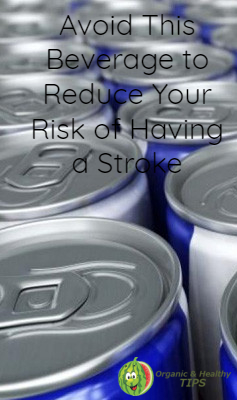Just one can of the popular stimulant energy drink Red Bull can increase your risk of heart attack or stroke. The effect was seen even in young people. The caffeine-loaded beverage causes blood to become sticky, a pre-cursor to cardiovascular problems such as stroke. One hour after drinking Red Bull, your blood system becomes abnormal, as might be expected from a patient with cardiovascular disease.
Red Bull has been banned in Norway, Uruguay, and Denmark because of health risks and in France from 1996 to 2008. In Kuwait, Ministry of Commerce banned Red Bull for those under 16 years old after causing heart attacks for a 16-year old and a 21-year old national Squash team player.
Do Energy Drinks Really Live Up to Their Name?
When you break down the contents of one of those eight-ounce cans, the primary ingredients are caffeine and sugar (in the form of glucuronolactone, sucrose and glucose). So the answer is yes, energy drinks will provide you with a quick burst of energy.
However, this is not a lasting effect, and drinking several in a row will not turn you into a flying superhero, no matter how hard their sinister marketing geniuses try to convince you otherwise.

According to the official website, Red Bull’s benefits include:
- Improved performance
- Increased concentration and reaction speed
- Increased endurance
- Increased metabolism
However, the effects of this energy drink will be similar to that of drinking a cup of coffee or a can of soda, in that when the effect wears off you’ll start feeling lethargic and will likely crave another can (or cup) to boost your energy once again. As many of you likely know, it can become a vicious cycle.
According to the article above, the Austria-based company that created Red Bull warns consumers not to drink more than two a day of their wings-in-a-can, but I couldn’t find any references to that fact on Red Bull’s website. Only a statement that said you should compare your consumption to that of coffee, with one can of Red Bull equaling one cup of brewed java.
The problem with that recommendation is the fact that no one really knows the net effect of chugging Red Bull like you would coffee. Coffee has caffeine, yes, but it doesn’t contain all those other artificial and energy-boosting ingredients, including no less than TWO artificial sweeteners (in addition to all the other sugar).
Do Energy Drinks Have Health Benefits?
Nutritionally speaking, energy drinks are comparable to carbonated beverages like soda in that they offer little of value to your body. Yes, there are traces of B vitamins in Red Bull, and it contains the amino acid taurine, but this cannot make up for the detrimental effects of caffeine and sugar.
Although caffeine can certainly increase short term reaction speed, one major problem is that no one really knows how the combination of ingredients in Red Bull will affect your body. This is especially concerning since energy drinks are marketed toward people under the age of 30, and are especially popular among students and night clubbers who oftentimes drink several cans at a time.
Who Should Definitely Avoid Energy Drinks?
It is fairly self-evident that children should never consume these kinds of drinks, but due to the detrimental health impact of their contents, it would definitely be wise to avoid energy drinks if you:
- Are pregnant or lactating
- Are sensitive to caffeine
- Suffer from anxiety
- Suffer from high stress
- Suffer from chronic fatigue syndrome
- Have high blood pressure
- Are predisposed to cardiovascular disease
- Have any kind of blood clotting disorder
As lead researcher Scott Willoughby stated, Red Bull can be deadly when combined with stress or high blood pressure, as it can impair proper blood vessel function and raise your risk of blood clots.







